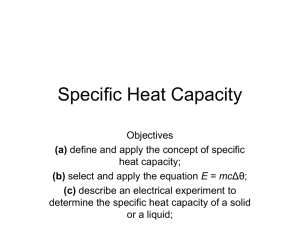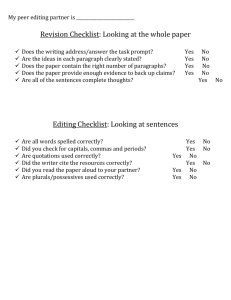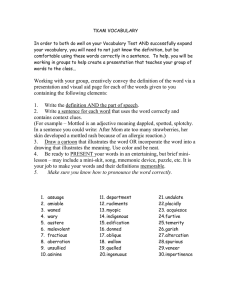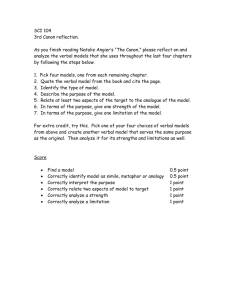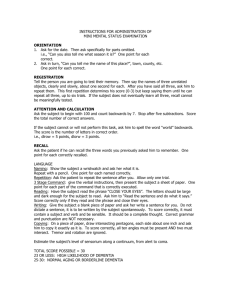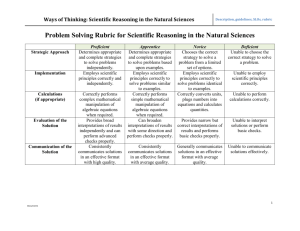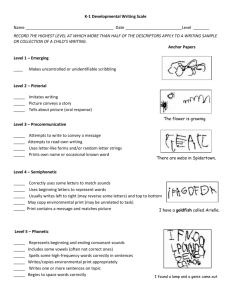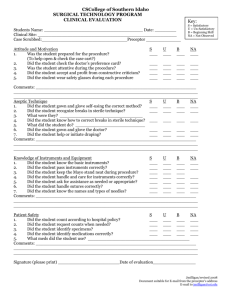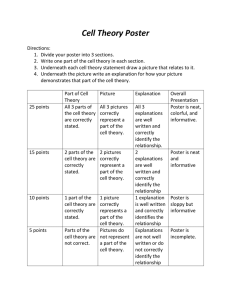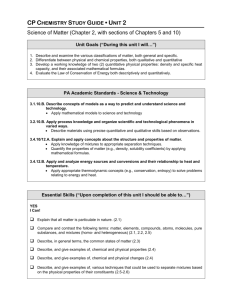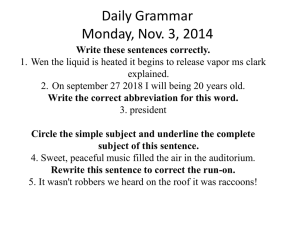Math Problem Solving Checklist for Teachers
advertisement
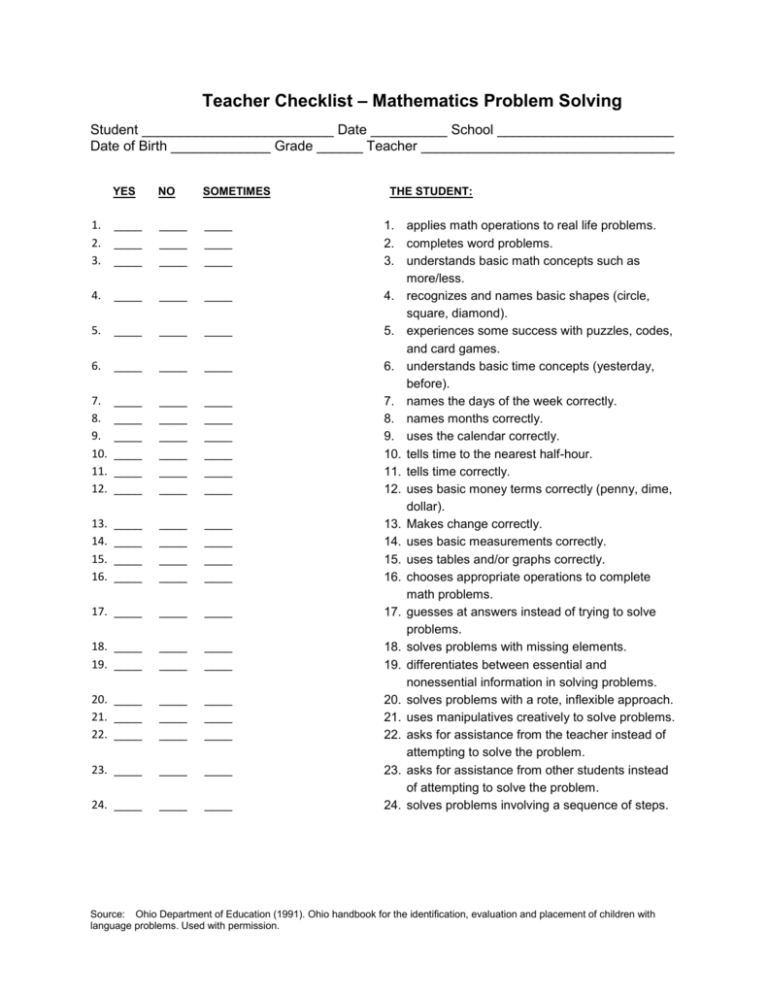
Teacher Checklist – Mathematics Problem Solving Student _________________________ Date __________ School _______________________ Date of Birth _____________ Grade ______ Teacher _________________________________ YES NO SOMETIMES 1. 2. 3. ____ ____ ____ ____ ____ ____ ____ ____ ____ 4. ____ ____ ____ 5. ____ ____ ____ 6. ____ ____ ____ 7. 8. 9. 10. 11. 12. ____ ____ ____ ____ ____ ____ ____ ____ ____ ____ ____ ____ ____ ____ ____ ____ ____ ____ 13. 14. 15. 16. ____ ____ ____ ____ ____ ____ ____ ____ ____ ____ ____ ____ 17. ____ ____ ____ 18. ____ 19. ____ ____ ____ ____ ____ 20. ____ 21. ____ 22. ____ ____ ____ ____ ____ ____ ____ 23. ____ ____ ____ 24. ____ ____ ____ 25. ____ ____ ____ 26. ____ ____ ____ THE STUDENT: 1. applies math operations to real life problems. 2. completes word problems. 3. understands basic math concepts such as more/less. 4. recognizes and names basic shapes (circle, square, diamond). 5. experiences some success with puzzles, codes, and card games. 6. understands basic time concepts (yesterday, before). 7. names the days of the week correctly. 8. names months correctly. 9. uses the calendar correctly. 10. tells time to the nearest half-hour. 11. tells time correctly. 12. uses basic money terms correctly (penny, dime, dollar). 13. Makes change correctly. 14. uses basic measurements correctly. 15. uses tables and/or graphs correctly. 16. chooses appropriate operations to complete math problems. 17. guesses at answers instead of trying to solve problems. 18. solves problems with missing elements. 19. differentiates between essential and nonessential information in solving problems. 20. solves problems with a rote, inflexible approach. 21. uses manipulatives creatively to solve problems. 22. asks for assistance from the teacher instead of attempting to solve the problem. 23. asks for assistance from other students instead of attempting to solve the problem. 24. solves problems involving a sequence of steps. Source: Ohio Department of Education (1991). Ohio handbook for the identification, evaluation and placement of children with language problems. Used with permission.
